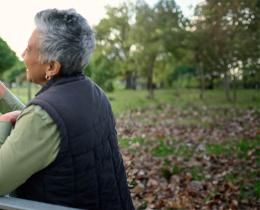Omega: Humans are naturally social and wired to connect. Why are we having so many challenges with connection these days?
Tara: I think these challenges to connection have always been there. Maybe they are more intensified and more out in the open these days, whether individual or collective. For example, at the collective level, there are our outdated assumptions and behaviors that lead to us-and-them thinking.
Daniel: One force working against social connections are the tech devices that pull us away from close connection with the people we are with, into distant links with a wider world. This dilutes our intimate connections.
Another force can be seen in the ratcheting upward of stress and work pressure. Before tech made us available 24/7, there was a clear barrier between work and the rest of our lives. Then there’s just the multitude of distractions we all face.
A Harvard study found that people’s minds are wandering about 50 percent of the time. If we’re not paying attention to the people we are with, there’s no chance for connection.
No matter the cause of challenged connections, in our work we focus on methods and principles to strengthen relationships.
Omega: What practices can we cultivate to feel more connected and at peace within ourselves?
Tara: We can recognize the interconnection between our inner and outer worlds, and find practices that nurture positive inner qualities, like empathy and kindheartedness, equanimity, humility, seeing the other person’s perspective, resilience (adapting to changing circumstances), skillful communication, and challenging our assumptions.
These are all benefits of one-pointedness, insight, and compassion practice, and of some Western therapeutic and educational approaches. These help us connect with an inner open and clear awareness, so we are replete within ourselves and less influenced by outer circumstances.
Sustaining our attention in one-pointedness connects us with a calmness and clarity that increases inner stability and gives us breathing space from knee-jerk conditioned habits and reactions. An introspective awareness and mindful discernment connects us with the part of the mind that sees beyond assumptions, preferences, biases, judgments, and reactivity.
Empathic attunement connects us with a warm-heartedness and emotional capacity for genuine connection, which melts invisible barriers in ourselves and with each other. We are more responsive to the needs of others. Awakening to these qualities within ourselves and cultivating these inner capacities ripples out to our relationships, so we can see and reach toward these qualities in the other person.
And we’re more subtly attuned to the obstacles to connections—like distractedness, false assumptions, lack of empathy, and filtering perceptions through a skewed lens—that disconnect us from ourselves and each other. As we become more disenchanted with these habits that separate us, and acknowledge the disconnection, there’s an increasing awareness.
We can change our inner relationship to them and have a real choice between these positive and negative modes of being, opening more to the attitude, "How can I make this work for everyone?" rather than the attitude, "I have to get my way."
Daniel: One of the methods we teach to cultivate connection and peace within is mindfulness, which enhances our self-awareness and creates inner peace. We also teach a method for expanding our circle of caring, a practice which strengthens our natural ability to connect.
Research finds that both of these practices strengthen the brain’s circuits for peaceful calm and for social connection.
My recent book (with neuroscientist Richard Davidson), Altered Traits: Science Reveals How Meditation Transforms Body, Mind and Brain, reviews cutting edge research that shows how powerful these methods are. Mindfulness, for example, makes people more calm, better able to handle a barrage of tasks, more likely to bounce back from stress, and less likely to get triggered by life’s setbacks and obstacles.
And the “circle of caring” practice has its own unique payoffs: becoming more generous and kind, more altruistic, and more open to connecting.



